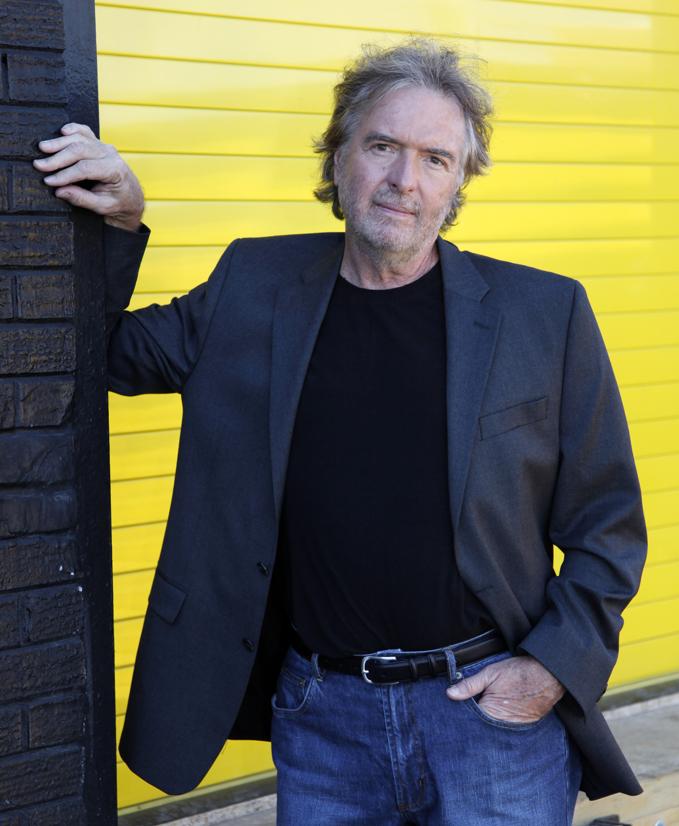
The Civil War has been good to novelist Charles Frazier. He based his first book, “Cold Mountain,’’ on the true story of his great-great uncle, a Confederate soldier. That work became a bestseller, spawned a movie, and won the National Book Award. In his new novel, Frazier returns to that troubled era, with a saga based on the life of Varina Howell, the young wife of Confederate president Jefferson Davis.
BOOKS: What are you reading?
FRAZIER: I try to read a bit in the morning and later in the afternoon and early evening. The one I was doing last night is by Stephanie Powell Watts, “No One is Coming to Save Us.’’ She’s a North Carolina writer, and this book has been called sort of a riff on “The Great Gatsby.’’ I do more than one book at a time. Usually the one I’m sticking with everyday is the later-in-the-day read, and then I skip around in the morning.
BOOKS: What have you been skipping around in?
FRAZIER: I’ve just started “In a Lonely Place’’ by Dorothy B. Hughes. The Humphrey Bogart movie is based on it. It’s got that Raymond Chandler feel to the writing.
BOOKS: Do you read a lot of noir?
FRAZIER: Yeah. I love Raymond Chandler and other writers like James M. Cain. My favorite first line of a book is from his “The Postman Always Rings Twice’’: “They threw me off the hay truck about noon.’’ That’s a lot better than “Call me Ishmael.’’
BOOKS: What else are you skipping around in?
FRAZIER: A book by the Italian Paolo Cognetti called “The Eight Mountains.’’ It’s about a friendship and has a beautiful feel for a mountain landscape. I tend to read whatever catches my eye. Like this Hungarian writer, who was active shortly after the turn of the 20th century, Gyula Krudy, who wrote “Sunflower’’ and “The Adventures of Sinbad.’’ His books are set in a culture I don’t know much about, and the writing is so mysterious. I’m lovin’ it.
BOOKS: Do you read nonfiction?
FRAZIER: Not an awful lot because I read so much for my work. When I’m working [on a novel] I don’t read a lot of fiction because I have this long list of historical things I need to read. I do think about the fiction that my characters would have read and read that.
BOOKS: What did Varina read?
FRAZIER: There are records of what they checked out of the Library of Congress when they were in Washington. So I could read those, like the autobiography of Thomas De Quincey, “Confessions of an English Opium-Eater.’’ There’s also a record of one night during the war when [her husband] wasn’t feeling well, and she read some best-sellery thing to him all night.
BOOKS: Do you make a point of reading Southern writers?
FRAZIER: One of the books I just finished is “Southernmost’’ by Silas House. I have a stack of four or five of his books that I’ve read. I liked “Southernmost’’ a lot. As a writer I was envious of the tight structure. It’s a real positive kind of book without being the least bit sappy.
BOOKS: What’s on your upcoming pile?
FRAZIER: Dickens’s “Our Mutual Friend.’’ Maybe that would be good for after my book tour. I’ve been looking for a book-tour book to read because I can’t concentrate well on a novel when I’m flying a lot. I’ve got a pretty little edition of Henry James’s “The Lesson of the Master,’’ but no way am I going to be able to follow James’s sentences under those conditions. What I need is a mystery.
BOOKS: What kind of book wouldn’t you pick up?
FRAZIER: Really long books have to persuade me that I need to devote that much time to them. If I’m in a bookstore and there is something I’ve heard is good but it has a certain heft, I’ll think, “Man I don’t know. I could reread “Anna Karenina.’’ I know I like that.
Follow us on Facebook or Twitter @GlobeBiblio.



